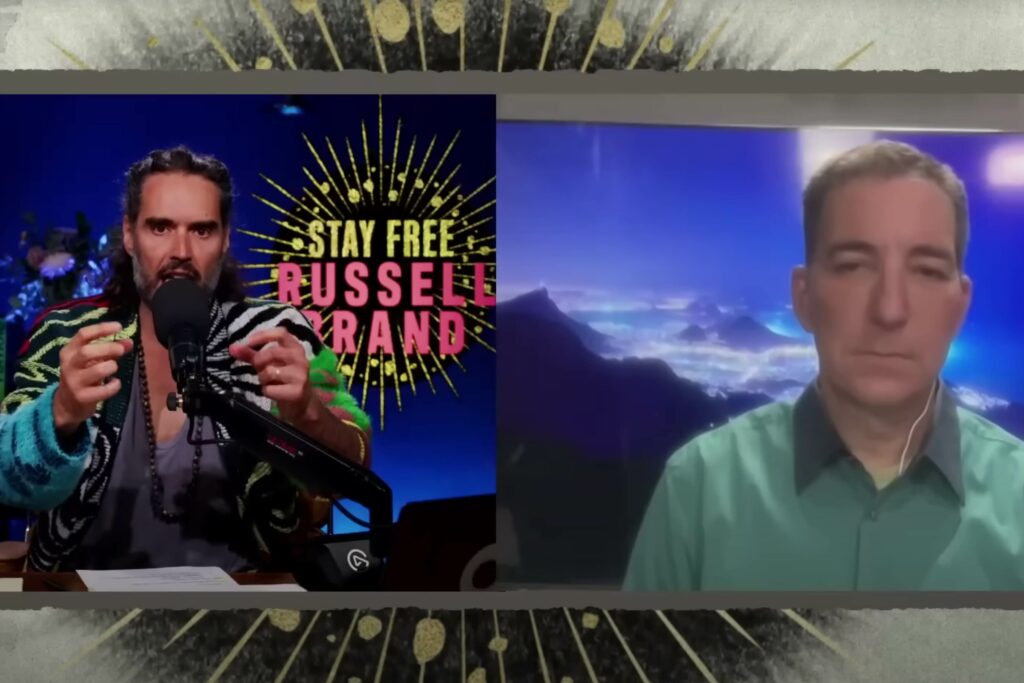Journalist Glenn Greenwald and actor Russell Brand dissect the non-partisan campaign to censor and completely silence dissent from the prevailing governmental narrative in a thought-provoking conversation. They explore the complex relationship between authority, freedom, and the erosion of trust in Western institutions. Greenwald discusses the paradox that secure and confident institutions of authority can grant more freedom to their citizens because of the trust they have in these institutions. However, when these institutions lose the public’s trust, they often become more authoritarian in an effort to suppress dissent and maintain their power. Whether you identify more as a conservative, liberal, populist, socialist, or independent makes no difference; our institutions have been weaponized against us.
As Greenwald states during the exchange, “Even though you have a bunch of differences on these inflammatory issues, and you call yourself a leftist or a rightist, and you belong to this party or that party, the reality is you have so much more in common than you do differences. Namely, your lives are being controlled, exploited, and abused by this very small segment of elite culture and the only thing that matters is overthrowing their hegemony. And then, once a fairer system is imposed, you can start grappling with those differences. Until then, you don’t have any outlet for doing that. You don’t even have the right or freedom to debate. You don’t have the right even to speak.”
Greenwald argues that instead of trying to understand why people have lost faith in them, Western institutions often choose to demonize the population, leading to an inescapable cycle of distrust and authoritarianism. This cycle is fueled by a lack of self-reflection among elites, who fail to question their own actions and accept responsibility for the consequences of their decisions. He cites examples such as the 2003 invasion of Iraq and the 2008 financial crisis as pivotal moments that further eroded public trust in elites and institutions.
Brand, reflecting on Greenwald’s insights, questions whether the current trajectory could lead to a revolution or an unprecedented level of tyranny, given the ever-growing power and surveillance capabilities at the disposal of the elites. Greenwald agrees that the only worthwhile project is to unify people against the small segment of elite culture that is controlling, exploiting, and abusing their lives. He emphasizes that despite ideological differences, the masses have more in common than not, and their primary goal should be to overthrow the hegemony of the elites and establish a fairer system.
However, Greenwald also notes a concerning shift in the tactics employed by the elites to maintain control. Instead of trying to appease the masses by addressing their grievances, the elites have chosen to militarize and surveil society in order to suppress dissent and prevent uprisings. This strategy is designed to deter the public from taking action, as the consequences of doing so would be severe.
Despite this grim reality, Greenwald finds optimism in the power of the internet as a tool for building online communities, sharing information, and challenging the narratives perpetuated by the elites. He believes that the growth of these communities and the dissemination of alternative viewpoints pose a significant threat to the existing power structures, and the elites’ efforts to control the internet through censorship and financial exclusion are a testament to that.
Perhaps, the very technology elites are using for repression and the sector of online life they are a part of can provide a source of optimism and resistance against the oppressive forces of the elites.













